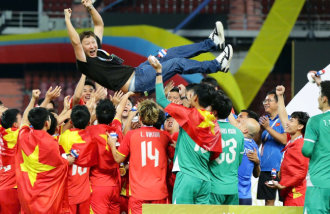[Editorial] Giving Ours In Order To Retrieve Ours?
[Editorial] Giving Ours In Order To Retrieve Ours?
Posted July. 28, 2001 08:55,
It must be a mistake that Korean Government pledged to `exchange` the precious old books of `Oekyujanggak (annex library of Chosun dynasty)` in France with the counterparts in Korea. This is like us providing our own things in order to retrieve ours.
Furthermore, the plundering behavior of the French may be virtually justified.
Korea and France have been negotiating the matter of the old precious books and now agreed to exchange the old books with the equivalent counterparts from Korea as a format of `Mutual Loan’, which initiate a task force team to conduct a technical investigation from September.
Both parties decided to review first 64 rare books that are believed to have no duplicate copies, out of the 267 concerned books.
Of course, it has its own meaning that a method has been paved to retrieve precious culture heritages of our nation from foreign countries. The Korean negotiation team says this is a practical solution, considering the positions of France who possess a lot of cultural assets plundered in various countries. In addition, since France transfers the unique prints and we provide only the books that have duplicate copies, it is not an equivalent exchange, which was emphasized by the team.
However, this agreement is exactly opposite to what our scholars had claimed, not to exchange books mutually, in the past. It appears that we might have lost the advantageous position against France because no consistency had been maintained ever since the matter was raised in 1991. Since we had been holding the keys of the matter of Express Train vehicles (TGV) against France, we should have presented successful cases of the foreign cultural asset returns and convinced them more effectively.
After the agreement was issued, our scholars raised their opposing voices in that we have now granted France pardon of sin for plundering our cultural assets. In particular, administrative officers of Kyujanggak from the Seoul National University swore that they would not release books to France in any case, saying that permanent return is the only solution for this matter.
According to international laws, it was `plundering` that France burned the Oekyujanggak in Kanghwa Island and took out the preserved books in 1866. Thus, it is an oxymoron that we provide our other old books in order to retrieve the plundered our own books. Furthermore, it may be a bad example for our future negotiations, which are concerned with 70,000 pieces of cultural assets overseas. Also, it is against the standing law of the cultural asset protection, in which `mutual loan’ is prohibited for more than 4 years. No matter how important the negotiations are, we do not know the reasons why they have agreed with France, even violating the internal regulations.
The relevant ministries, including the Culture and Tourism Ministry and Foreign Affairs and Trade Ministry, need to take sufficient time and lay out the strategy from the scratch.
Various solutions can be found, such as resorting to international laws or seeking for a `permanent loan` again, waking up French opinion leaders.



![넘치는 전재수 과거 사진들…유죄의 증거일까, 무죄의 증거일까[청계천 옆 사진관]](https://dimg.donga.com/c/138/175/90/1/wps/NEWS/IMAGE/2025/12/20/132997378.1.jpg)


![“아무리 씻어도 안 빠져” 김치통 냄새, □□으로 싹 [알쓸톡]](https://dimg.donga.com/c/138/175/90/1/wps/NEWS/IMAGE/2025/12/18/132993861.3.jpg)
